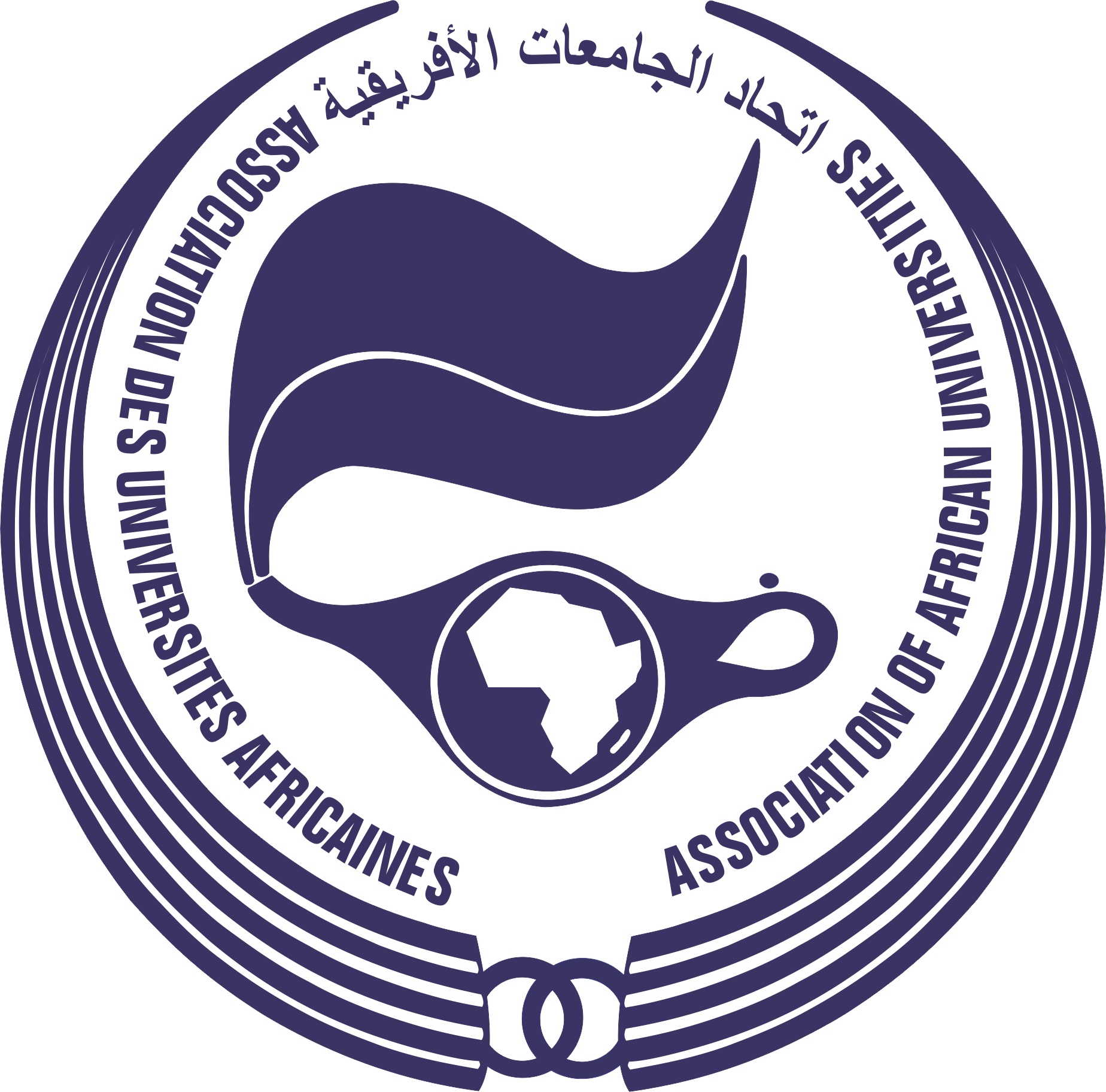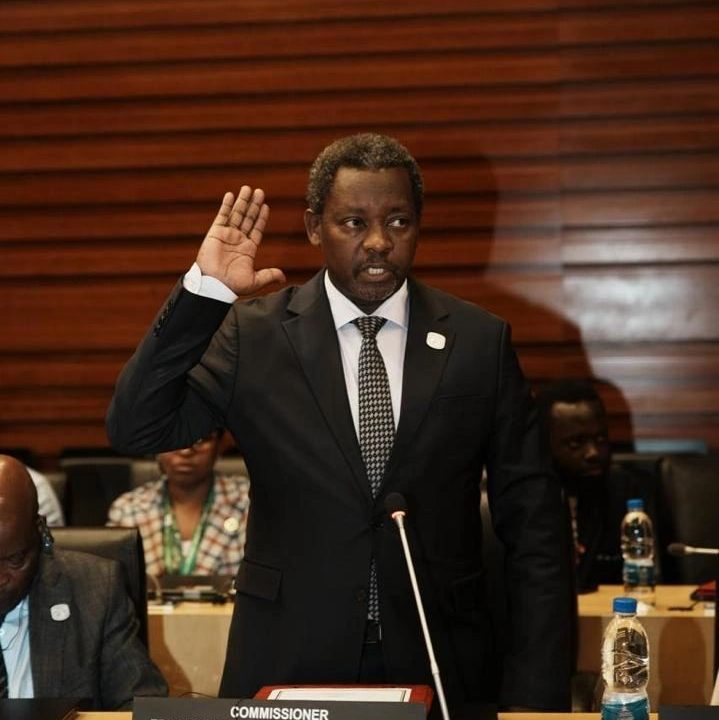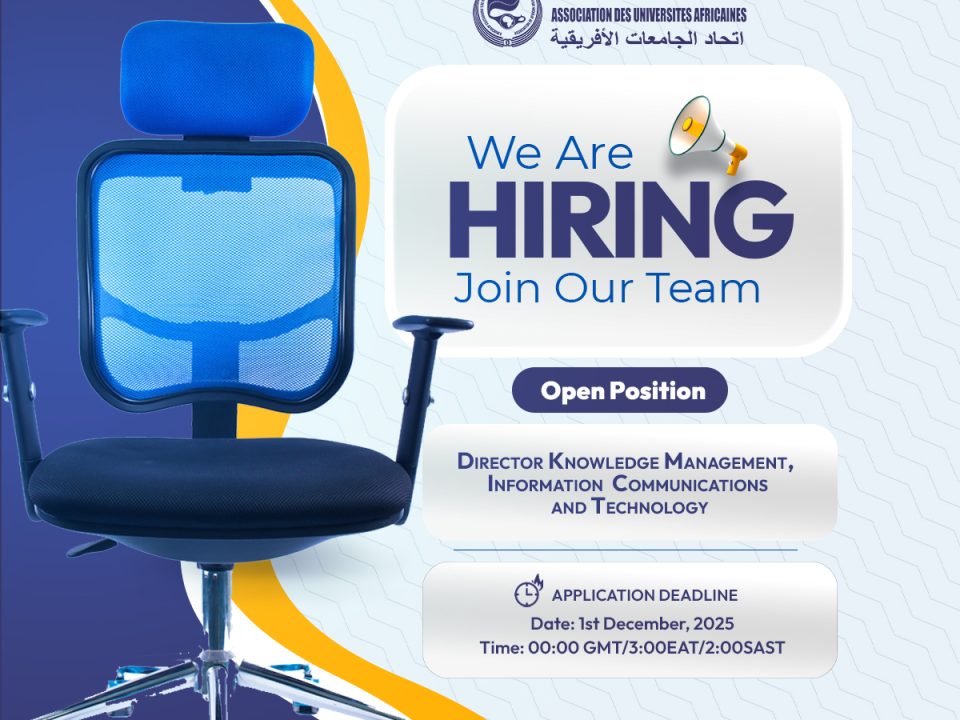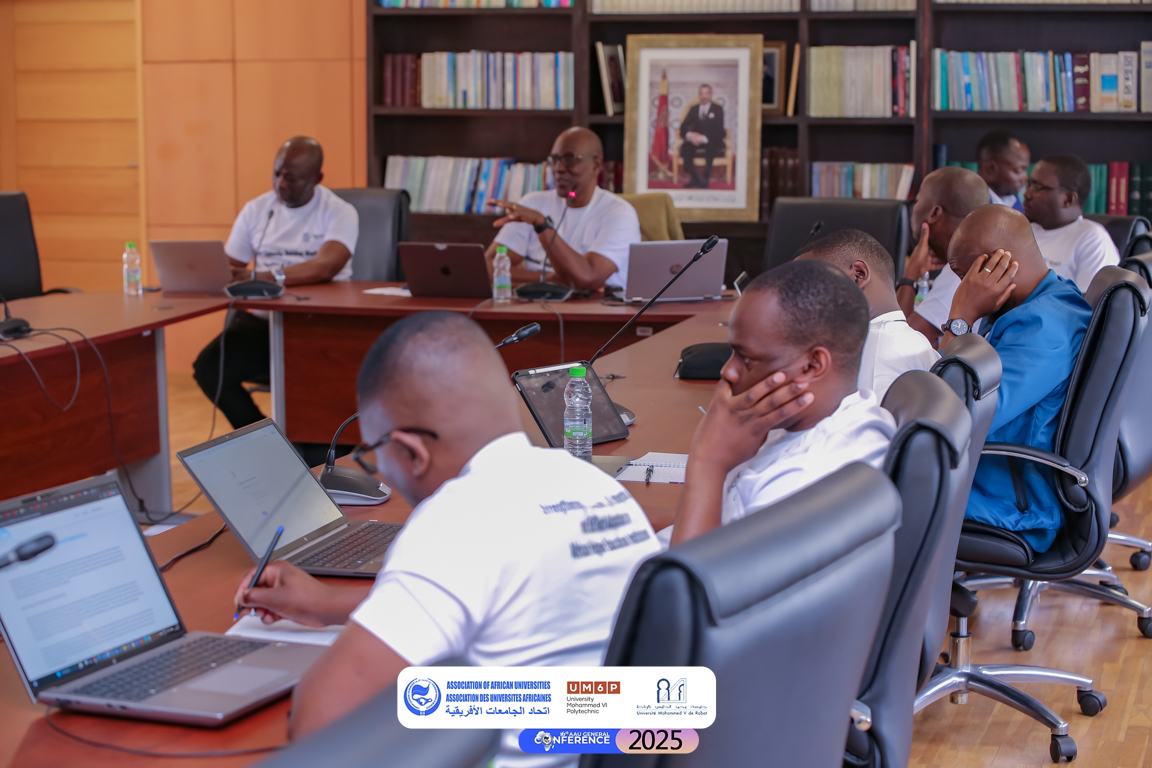
Renforcement des capacités en cybersécurité dans l’enseignement supérieur africain : formation des directeurs des TIC en matière de CSIRT et de réponse aux incidents
July 20, 2025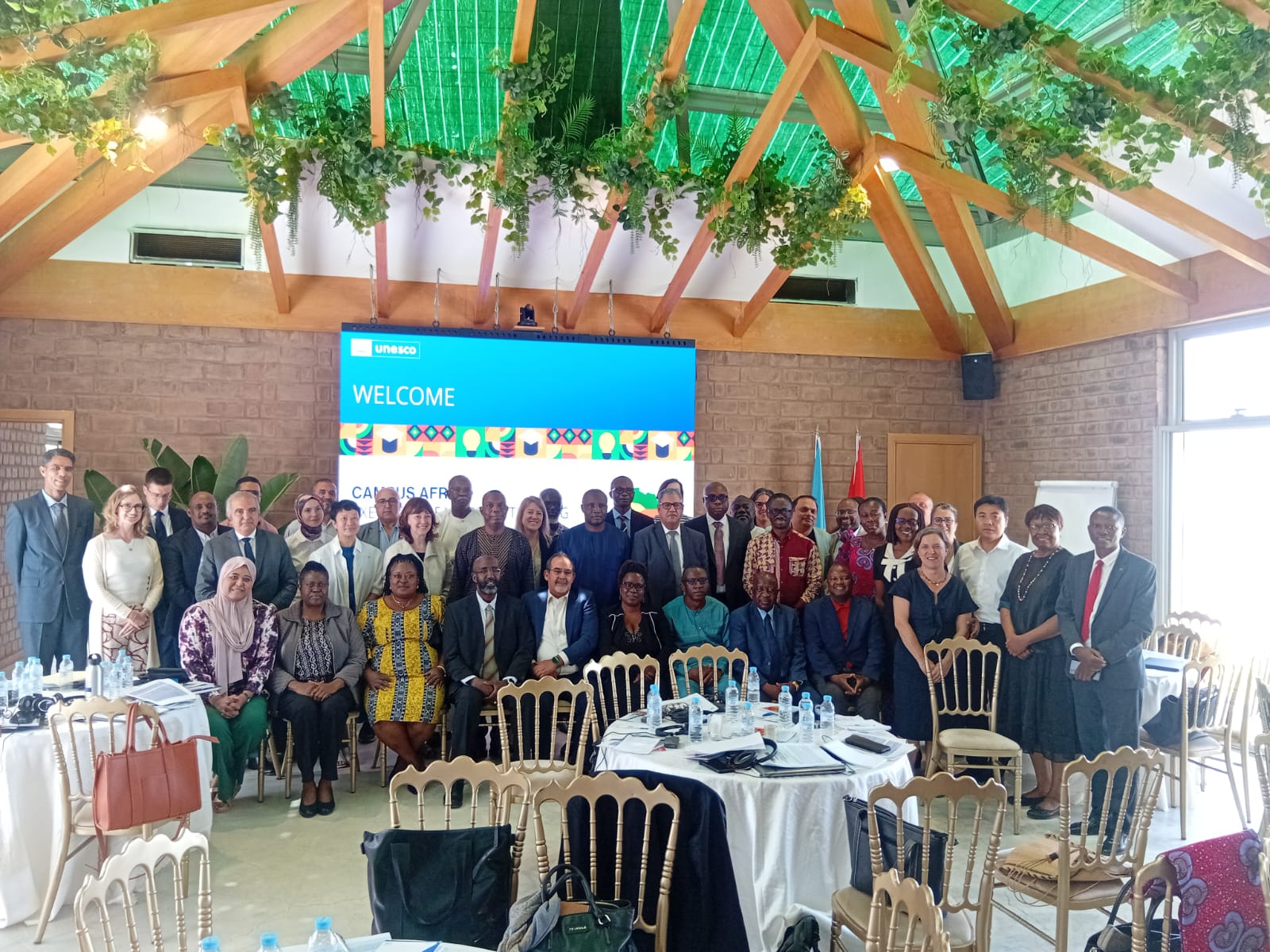
AAU-UNESCO Executive Leadership Training at 16th AAU General Conference in Rabat, Morocco
July 20, 2025Ahead of the 16th Quadrennial General Conference of the Association of African Universities (AAU), a two-day pre-conference workshop was held from July 19 to 20, 2025, at the University Mohammed V (UM5) of Rabat, Morocco. Under the theme “Driving Policy Through Research, Communication, and Partnerships for Institutional Transformation,” the workshop brought together academics, researchers, institutional leaders, and policy influencers from across Africa to explore how research, communication, and strategic partnerships could inform institutional transformation across Africa.
The workshop featured a series of interactive sessions led by three facilitators, Dr. Konosoang Sobane, Ing. Ilyas Azzioui, and Prof. Sanaa Zebakh. Participants engaged in practical exercises, case studies, and collaborative group work to equip themselves with tools and frameworks to drive change in their institutions. The sessions covered topics such as crafting of policy briefs, science-policy communication, and public-private partnerships (PPPs), all tailored to the African higher education context.
DAY 1: RESEARCH FOR POLICY AND STRATEGIC COMMUNICATION
19th July 2025, the first day of the workshop was opened by Mr. Ransford Bekoe, the Partnerships Manager at the Association of African Universities. He provided a brief overview of AAU’s mission and capacity-building initiatives, emphasizing the relevance of the workshop to participants from a partnership’s perspective. The workshop was led by Dr. Konosoang Sobane, a seasoned expert in science and health communication from South Africa’s Human Sciences Research Council (HSRC).
The day began with a session on strengthening the link between research and policy through effective communication. The opening session explored the research-policy interface, highlighting how research outputs could be aligned with policy needs. Dr. Sobane emphasized the importance of understanding the policymaking environment and identifying opportunities for research to inform decisions.
The session was followed by a deep dive into crafting effective policy briefs, where participants learnt to structure informative and persuasive briefs. There were also detailed discussions on the techniques for framing problems, contextualizing evidence, and formulating actionable recommendations. The practical session on writing concise, reader-friendly briefs allowed participants to apply these techniques, with a focus on communicating complex findings to non-specialist audiences.
Dr. Sobane also introduced tools for strategic science-policy engagement, including stakeholder mapping, aligning communication with institutional goals, and leveraging digital platforms for outreach.
The day concluded with a presentation of case studies from African universities, highlighting both challenges and successful strategies in science-policy communication. These real-world examples provided valuable insights into the barriers and enablers of effective policy engagement across the continent.
DAY 2: PUBLIC-PRIVATE PARTNERSHIPS AND INTEGRATION
The second day of the workshop, Sunday, July 20, 2025, centered on the transformative potential of Public-Private Partnerships (PPPs) in advancing research and innovation within African higher education institutions. The sessions were jointly facilitated by Ing. Ilyas Azzioui, a seasoned engineer and co-founder of Mathscan, and Professor Sanaa Zebakh, Director of Cooperation and Partnership at the Ministry of Higher Education, Science, Research, and Innovation in Morocco.
The day began with a mind-opening session on the strategic role of Public-Private Partnerships in the African context. Participants examined the dynamics of university–private sector collaboration, exploring how such partnerships could address funding gaps, enhance research relevance, and foster innovation ecosystems. The facilitators emphasized the importance of aligning institutional missions with private sector interests to create mutually beneficial and sustainable engagements.
In the first group exercise, participants were invited to map existing PPP experiences from their institutions and countries. This interactive session encouraged comparative learning, allowing attendees to share success stories, identify common challenges, and reflect on the enabling conditions for effective partnerships.
Building on these insights, the second half of the day focused on co-designing frameworks and guidelines for future PPPs. Participants worked collaboratively to draft principles and actionable recommendations for structuring partnerships that are transparent, scalable, and impact driven. The facilitators provided guidance on stakeholder engagement, risk management, and long-term sustainability planning.
The day concluded with a wrap-up session and certificate presentation, celebrating the contributions and commitment of all participants. The discussions and outputs from Day Two not only enriched the workshop experience but also laid the groundwork for future collaborations aimed at transforming Africa’s higher education landscape through strategic public-private engagement. Over the course of the two-day workshop, participants gained practical skills in policy communication, developed frameworks for effective public-private partnerships, enhanced their understanding of the research-policy interface, and built valuable networks to support institutional transformation across Africa. Participants remained energized and ready to engage with the broader audience at the 16th AAU General Conference, applying the insights and outputs from the workshop to initiate new partnerships and collaborations beyond the five-day event.
